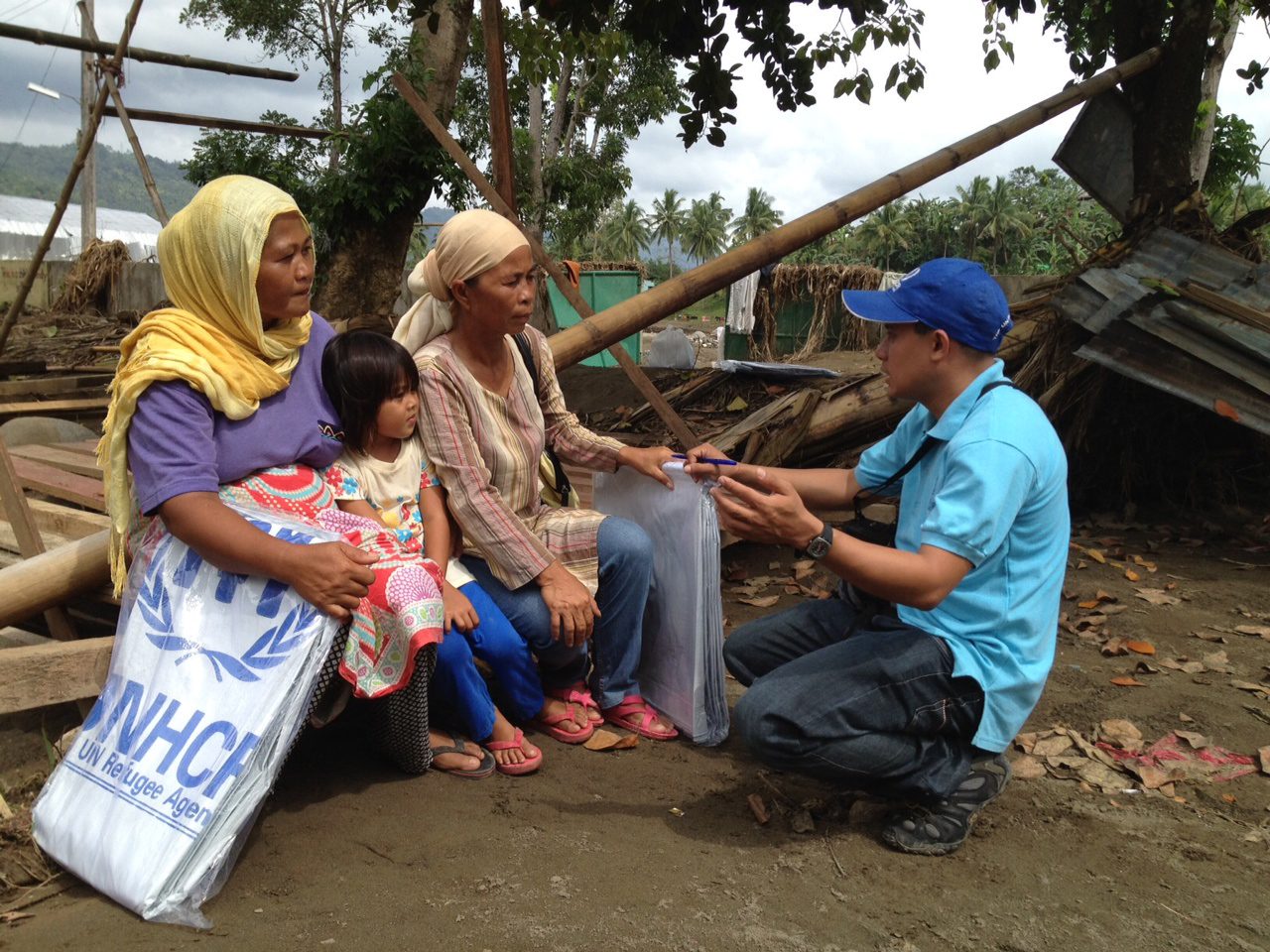Container ship sails into Dili harbour with 150 tonnes of emergency aid
Container ship sails into Dili harbour with 150 tonnes of emergency aid

DILI, Timor-Leste, June 12 (UNHCR) - A container ship carrying 150 tonnes of UNHCR emergency relief aid, including lightweight tents, blankets, kitchen sets, jerry cans and plastic sheets, sailed into Dili harbour as the sun set on Monday.
The arrival of the shipment from Darwin in Australia completes the first phase of UNHCR's aid delivery to Dili, following the onset of unrest in late April that caused tens of thousands of people to flee their homes in the capital of Timor-Leste. Last week, some 56 tonnes of aid were ferried to Dili, most from Darwin where the bulk of the aid had been flown from UNHCR's regional stockpile in Jordan aboard two Boeing 747s.
The UN refugee agency is using the supplies to improve conditions in some of the most crowded camps for the displaced that have sprung up in Dili and surrounding districts.
There is now enough aid on the ground for more than 17,000 people, and more deliveries are planned. Monday's aid shipment brought the total amount of supplies to 3,620 tents, 17,750 blankets, 3,520 kitchen sets, 3,610 jerry cans and 3,650 plastic sheets. UNHCR urgently needs US$4.8 million in emergency funding from donors for its Timor-Leste operation.
UNHCR's emergency response team leader, Johann Siffointe, said latest estimates put the number of displaced at about 67,000 people in the capital and more than 60,000 in the surrounding districts. "We are moving full steam ahead to distribute supplies to those most in need," he added.
Some of the tents that arrived last week will soon be used to ease congestion in crowded sites. "More than 110 tents are already up at the airport site organised in communities of 16 tents," Siffointe said.
"More tents will be pitched tomorrow and additional land has been cleared today. The site is expected to host 200 tents, providing shelter for up to 2,000 people," he said, adding that the first families could probably move into the lightweight family tents on Tuesday.
Planning for the provision of lighting, latrines and water points is well under way and UNHCR has been working with camp representatives and non-governmental organisations (NGOs) to identify the most vulnerable people. Australian troops called in to help restore order are providing security at the airport, including the displaced persons camp.
Meanwhile, UNHCR on Monday pitched a first 20 of its durable and waterproof tents at Dili Stadium, after being asked by the government to build a camp at the facility to help ease congestion elsewhere. People will be able to move there on a voluntary basis once security is established and essential services like water and sanitation are in place.
Elsewhere in Dili, some 72 tents have been delivered to Don Bosco College, while more than 100 tents have been sent to the National Hospital. These will be used by vulnerable people, including pregnant women, and hospital staff whose houses were destroyed in the violence and arson attacks.
NGOs are being taught how to put up the tents and provided with examples of site plans. UNHCR plans to send some 100 tents, 500 blankets and 100 plastic sheets to Atauro Island, just off Dili, as part of an inter-agency aid consignment on Wednesday.
UNHCR has also been conducting assessments outside the capital. So far, the agency has visited the Liquicia, Ermera and Aileu districts to the west of the capital where some 17,000 people have fled. Many are staying with relatives, while some are sheltering in huts and others in church buildings or village offices.
UNHCR is liaising with local organisations to identify urgent needs, which so far include shelter (such as tents and plastic sheeting), cooking utensils and jerry cans as well as food and water. Distribution of emergency supplies in the districts outside Dili will begin in the coming days.
To the east, more than 15,000 people are reported to be displaced in the Bacau district and either living with relatives or sheltering in schools, village offices and hospital staff dormitories. UNHCR is identifying their most urgent needs.
By Ariane Rummery in Dili, Timor-Leste







